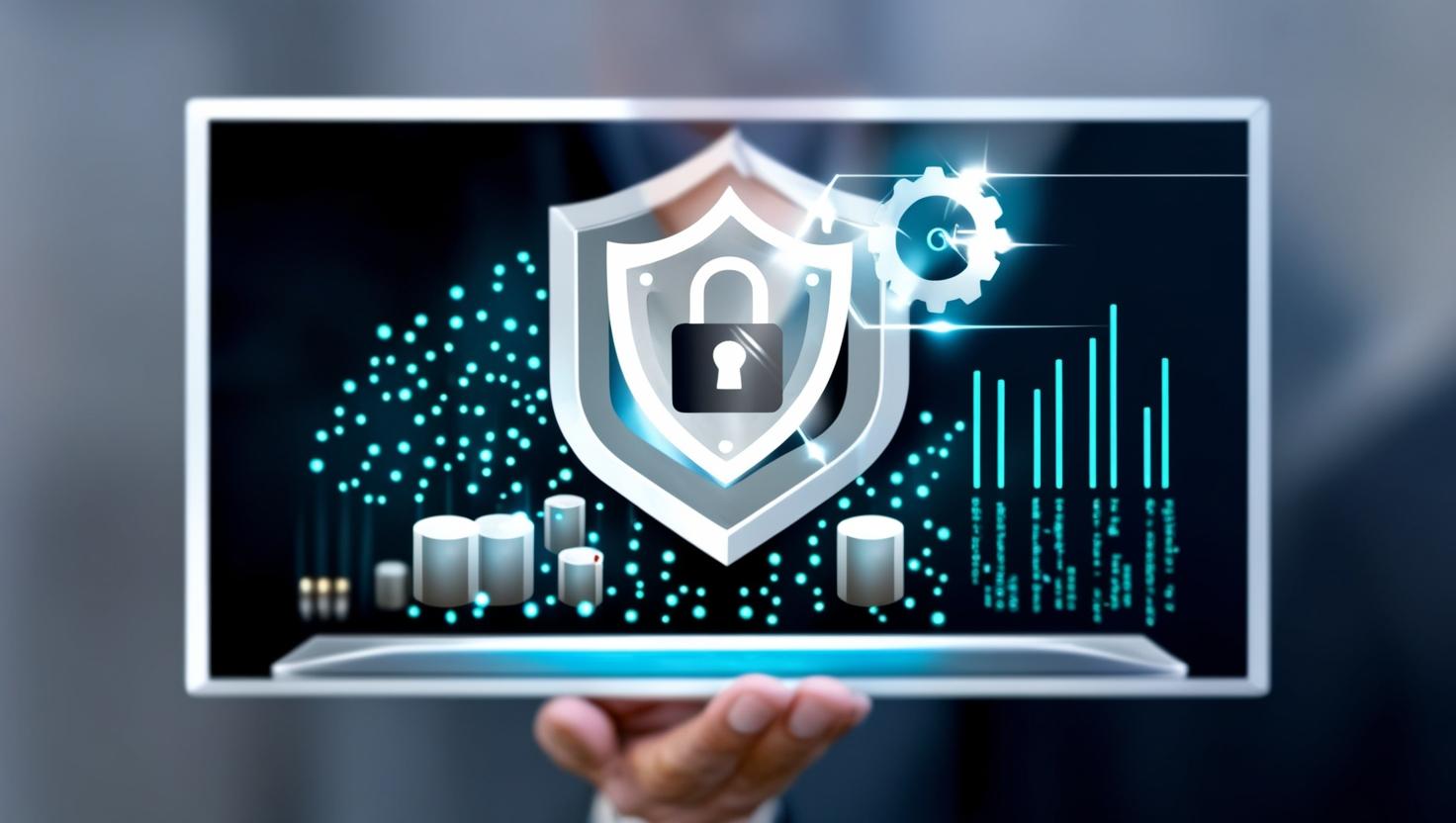Information Technology Asset Management (ITAM) is a set of business practices that unites financial, inventory, contractual and risk functions to manage the lifecycle of IT assets and make strategic decisions for the enterprise. ITAM is crucial for any organization as it helps ensure that IT assets are properly documented, utilized and protected, maximizing value and minimizing associated risks.
However, security in ITAM is a pressing need. With the increase in cyber threats and the increasing dependence on information technologies, ensuring ITAM security has become a priority for organizations. This article will explore six essential practices for ensuring ITAM security, helping organizations protect their IT assets and operate more efficiently and securely.
1. Complete Inventory
Having a complete inventory of all IT assets is like having a clear map of the organization's entire technological treasure trove. It shows where all devices, software and network resources are, ensuring a clear view of the items at your disposal. This not only helps in effective resource management, but also avoids wasted investment in unnecessary technologies.
Keeping this inventory up to date requires continuous care and attention. This means implementing processes and tools that help you constantly track new assets, updates, and changes to your IT infrastructure. Automating this task whenever possible saves time and effort, ensuring that the technology map is always accurate.
Furthermore, it is important that everyone on the team knows who is responsible for the inventory and that they receive the necessary training to keep it up to date. This includes following IT asset usage policies, performing regular audits, and integrating inventory with other IT management and security tools.
2. Policies and Procedures
Policies and procedures provide clear guidance on how to handle our technology resources, from the moment they enter the organization to the moment they leave, ensuring everyone knows exactly what to do.
These guidelines are not only helpful for keeping things organized, but they are also essential for team safety. They help control who can access IT assets, how they should be used and protected, and what action to take if something goes wrong. It's like having an emergency plan in case of problems.
Additionally, policies and procedures help implement important security practices, such as protecting data with encryption and ensuring that only the right people have access to systems. When everyone on the team knows and follows these guidelines, the corporation becomes more resilient against cyber threats and other potential dangers.
3. Training and Awareness
Understanding the importance of training and raising employee awareness about ITAM policies is like ensuring everyone is on the same page on an important project. This training helps create a culture of cyber security across the organization.
By educating employees about ITAM policies, we are providing them with the tools they need to effectively protect IT assets. They learn how to identify potential threats and how to act in accordance with established policies to prevent security breaches.
Additionally, training and awareness help build a more vigilant and responsible team. When everyone is aware of security risks and understands how their actions can impact the security of IT assets, they become active defenders of the organization's cybersecurity. It's like turning each employee into a virtual security guard, protecting data and systems against external threats.
4. Continuous Monitoring
Continuous monitoring allows you to detect any suspicious or unusual activity on systems, helping to identify potential security threats before they become a bigger problem.
Continuous monitoring is like having an alarm system that immediately warns you if something is wrong. By closely monitoring network traffic, data access, and user behavior, you can identify unusual patterns that could indicate a potential security breach. This allows us to act quickly to contain the threat and protect our IT assets.
The benefits of continuous monitoring don't end there; by regularly analyzing collected data and identifying security trends, you can adjust policies and procedures as needed to further strengthen security.
5. Updates and Patches
Keeping all IT assets up to date and regularly applying security patches is critical to ensuring the integrity and protection of systems and data. This involves keeping software and operating systems at their latest versions by implementing all available security fixes.
These updates and patches are like a protective barrier against cyber threats. They fix known flaws and close potential loopholes that could be exploited by hackers to compromise systems.
Updates and patches also contribute to long-term security. By regularly monitoring the latest security updates and applying them diligently, we ensure systems remain protected against the ever-evolving threats of the cyber landscape.
6. Regular Audits
Carrying out regular audits is essential to ensure the practice of ITAM policies and maintain compliance in the organization.
Audits allow you to identify potential gaps or failures in security processes, such as outdated devices, unauthorized access or incorrect configurations. By highlighting these areas of concern, audits allow you to take corrective action to strengthen security.
Additionally, regular audits not only identify security issues but also help fix them. By implementing recommendations resulting from audits, we are proactively closing security gaps and strengthening defenses against potential threats. It's like carrying out preventive maintenance on security systems, ensuring that they are always ready to face any challenge that may arise.
The ever-evolving technology landscape demands a proactive and adaptive approach to asset management. It’s not enough to simply implement the six essential practices mentioned above; it’s crucial to understand how they integrate and complement each other to form a robust security ecosystem.
The configuration management database (CMDB), for example, plays a key role in maintaining a complete inventory. By centralizing information about all configuration items, from hardware assets to software assets to mobile devices, the CMDB enables a holistic view of an organization’s IT infrastructure. This view is essential for vulnerability management, incident management, and change management, ensuring that IT operations are performed efficiently and securely.
The CSDM model, in turn, offers a framework for organizing and structuring CMDB data, facilitating the understanding of the relationships between IT assets. This allows for efficient management of asset life cycles, from acquisition to decommissioning, ensuring that IT resources are utilized optimally.
Data protection is another critical aspect of ITAM security. By implementing clear and well-defined policies and procedures, companies can ensure that sensitive data is protected from unauthorized access, loss, or theft. Access management and data encryption are essential tools in this process.
Software asset management (SAM) plays a crucial role in ensuring legal compliance and optimizing costs. By maintaining tight control over software licenses, companies can avoid fines and penalties, and ensure that software assets are utilized efficiently.
ITAM governance is critical to ensuring that ITSM practices are implemented consistently and effectively. This includes defining clear responsibilities, implementing standardized processes, and conducting regular audits to verify compliance with established policies and procedures.
In a world where cyber threats are constantly evolving, ITAM security is not a destination, but rather an ongoing journey of continuous improvement. Organizations must always be vigilant about new threats and vulnerabilities, adapting their policies and procedures as necessary to ensure data protection and business continuity.
To assist in this process, implementing a single platform that integrates the various ITAM tools and processes can be extremely beneficial. This approach allows for a unified view of IT assets, facilitating strategic decision-making and project management.
If you are looking to strengthen the security of your IT infrastructure, get in touch with us. Our team of experts is ready to help you implement ITAM best practices, ensuring that your IT assets are protected from threats and utilized efficiently. Work with us and drive your company’s digital transformation.
Conclusion
Maintaining security in ITAM is not just an isolated concern, but an essential part of the overall health of the ITAM. IT infrastructure of an organization. Each of these practices plays a crucial role in protecting IT assets from cyber threats and maintaining the integrity and security of systems and data. By implementing and following these practices, organizations can strengthen their defenses against constantly evolving threats and ensure the operational continuity of their business.
If your company needs support to implement or improve your ITAM security practices, we are available to offer our expertise and assistance. Contact us clicking here to learn how we can help strengthen the security of your IT infrastructure.
We hope this article provides a comprehensive overview of security practices in ITAM and highlights our willingness to support your company in this process. If you require further information or assistance, please do not hesitate to contact us. We are here to help!


